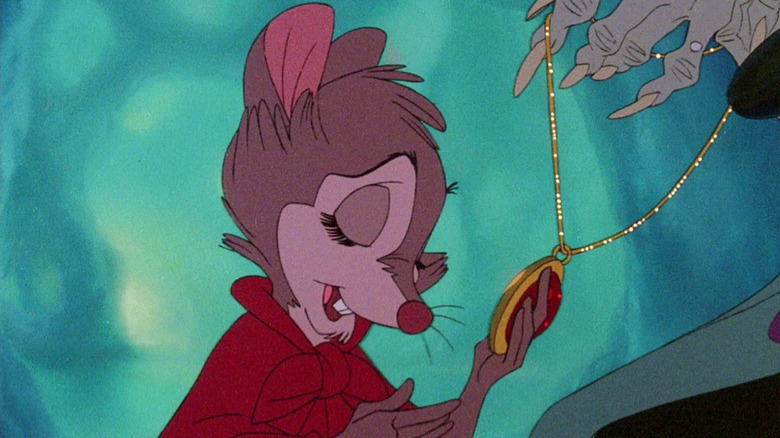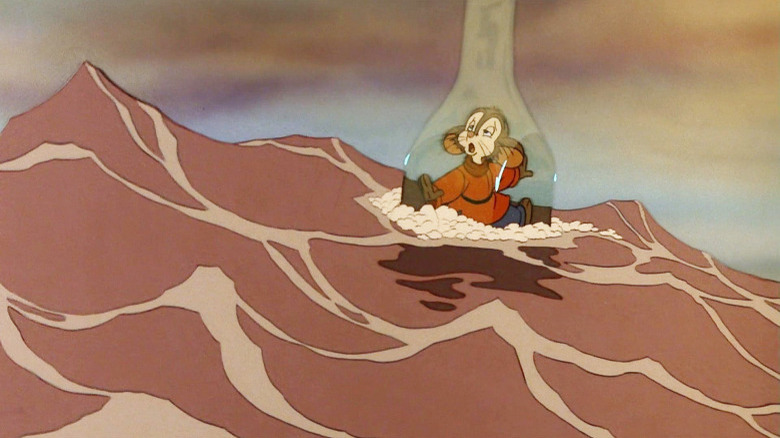The Recurring Theme That Appears In Every Single Don Bluth Movie
Don Bluth is one of those directors whose films I find inseparable from my memories of childhood. Just as Disney Animation was hitting a low point in the 1980s, Bluth was churning out animated classics like "The Secret of NIMH," "An American Tail," and "The Land Before Time." These are daring movies full of darkness and whimsy, marrying gorgeous hand-drawn imagery with stories about animal abuse, the plight of Russian-Jewish immigrants traveling to 19th-century America, and the beginning of the end of the age of dinosaurs. His next film after those three, 1989's "All Dogs Go to Heaven," is a parable about no less a topic than the meaning of existence.
Bluth's output mellowed as he struggled to compete with Disney's animation renaissance, yet he held onto his underlying weirdness for as long as he could. He started off the '90s directing strange animated musicals like "Rock-a-Doodle" (a movie about a rooster who leaves his farm to become a rock star in the style of Elvis Presley) and "A Troll in Central Park" (a film about a troll with a literal green thumb that allows him to magically bring plants to life). By the end of the decade, however, he was working for Fox Animation Studios and making "Anastasia," a well-reviewed animated musical and the biggest box office hit of his career, but also a movie that borrows liberally from the Disney Renaissance playbook.
Sadly, Bluth's underrated 2000 animated sci-fi adventure film "Titan A.E." was a costly bomb that marked the end of the line for both Fox Animation and, to date, Bluth's career as a feature-length director. Looking back at his work from the vantage point of the present, is there a common theme that unifies even his most disparate animated movies? There is, according to Bluth himself.
Somewhere out there
In an August 2022 interview with the Los Angles Times, Bluth singled out the one thing all the characters in his films have in common. Be they field mice, dinosaurs, or lost Russian princesses, each of them is searching for a place to call their home:
"Every movie that I've ever made, if you look at it closely, is about going home. Those are thematic things that seem to push their way inevitably into all my movies. Home isn't necessarily the soil that you walk on, but where your spirit can breathe, where your loved ones are. It's where all your memories are. It's something that's very dear."
Indeed, "going home" sums up the plot for most of Bluth's films. "The Secret of NIMH" and "An American Tail" are stories about mice and rats looking for a place where they can live in peace and harmony away from those that would seek to do them harm. Both "All Dogs Go to Heaven" and "Anastasia" center on lonely young orphans trying to find their family and a place where they feel loved, be it with the family they were born into or one of their own making. In "The Land Before Time" and "Titan A.E.," the heroes similarly undergo a perilous journey in the hopes of finding a safe harbor for them to live after their old home is destroyed (very literally, in the case of "Titan A.E.").
Perhaps that's why Bluth's films continue to speak to people who were raised on them well into adulthood. Part of growing up and getting older is learning when it's time to say goodbye to the home you once knew and set out to find a new one. When you think about it, we never really stop "going home," do we?

